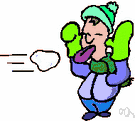ridicule
Also found in: Thesaurus, Idioms, Wikipedia.
rid·i·cule
(rĭd′ĭ-kyo͞ol′)These verbs refer to making another the butt of amusement or mirth. Ridicule implies purposeful disparagement: "My father discouraged me by ridiculing my performances" (Benjamin Franklin).
To mock is to poke fun at someone, often by mimicking and caricaturing speech or actions: "the bear ... [devoured] the children who mocked God's servant Elisha for his baldness" (Garrison Keillor).
Taunt suggests mocking, insulting, or scornful reproach: "taunting him with want of courage to leap into the great pit" (Daniel Defoe).
Deride implies scorn and contempt: "Was all the world in a conspiracy to deride his failure?" (Edith Wharton).
ridicule
(ˈrɪdɪˌkjuːl)rid•i•cule
(ˈrɪd ɪˌkyul)n., v. -culed, -cul•ing. n.
Ridicule
(See also INSULT.)
give the gleek To poke fun at; to mock or ridicule. In this expression, gleek carries its archaic meaning of a joke or jest, thus giving the obsolete phrase its figurative sense of harmless teasing.
Sir Thomas, seeing the exceeding vanity of the man, thought he needed modesty, and gave him this gentle gleek. (Christopher Wordsworth, Ecclesiastical Biography, 1599)
laugh in one’s sleeve To laugh surreptitiously; to be secretly amused or contemptuous; to ridicule in secret. This expression alludes to the popular 16th-century Englishman’s garb which included sleeves large enough to hide a person’s face so that he could smile or laugh covertly.
If I coveted now to avenge the injuries that you have done me, I might laugh in my sleeve. (John Daus, A Famous Chronicle of Our Times Called Sleidane’s Commentaries, 1560)
The French equivalent is rire sous cape ‘laugh in one’s cape, ’ referring to a French nobleman’s cape which could serve the same purpose as an Englishman’s sleeve. Another variation which arose in Spain at about the same time is laugh in one’s beard, implying that a beard could be used to hide the expression on one’s face.
laugh like a drain See HUMOROUSNESS.
nine tailors make a man An expression of contempt and derision, usually used in the context of ridiculing someone’s physical stature. Since it was medieval custom to mark the death of a man with nine tolls of the church bell, a woman with six, and a child with three, this obsolete British invective is probably a corruption of nine tellers mark a man, teller being a variation of toller ‘a knell.’ As the expression became more common, however, the original meaning was lost, being replaced by the stereotypic concept of tailors as being so feeble and physically degenerate that it would take nine of them to equal one man of normal size and strength. The Scottish historian Thomas Carlyle (1795-1881) tells of Queen Elizabeth I (1533-1603) who, upon receiving a delegation of eighteen tailors, greeted them with royal wit: “Good morning, gentlemen both.”
quote-unquote So-called; thus designated. This expression is currently becoming more widely used in American speech, usually in a sarcastic, derogatory, or denigrating reference to a person’s or group’s appellation, especially one that is self-assumed. Quote-unquote is a verbal representation of quotation marks (“ ”) which, in writing, are placed around usually complimentary word(s) that are intentionally used cynically or disparagingly. For example, the term might be heard in a context like “The politician dreaded the thought of again having to meet with the quote-unquote pillars of society.”
roast To mock brutally or ridicule; to criticize severely or put down; to dress down, to take down a peg. This relatively recent American colloquialism is a term which, like cook, burn, and heat, is heard in expressions that create an image of discomfort or destruction.
If he were to roast our Skinski it might hurt our business. (Hugh McHugh, You Can Search Me, 1905)
tongue in cheek Sarcastically, insincerely; not seriously, deadpan; mockingly, derisively. The origin of the term is uncertain.
There was no speaking “with his tongue in the cheek.” He spoke straight from the heart. (Sir E. W. Hamilton, Gladstone, 1898)
ridicule
Past participle: ridiculed
Gerund: ridiculing
| Imperative |
|---|
| ridicule |
| ridicule |
| Noun | 1. |  ridicule - language or behavior intended to mock or humiliate ridicule - language or behavior intended to mock or humiliatediscourtesy, disrespect - an expression of lack of respect |
| 2. | ridicule - the act of deriding or treating with contempt offense, offensive activity, discourtesy, offence - a lack of politeness; a failure to show regard for others; wounding the feelings or others mock - the act of mocking or ridiculing; "they made a mock of him" | |
| Verb | 1. |  ridicule - subject to laughter or ridicule; "The satirists ridiculed the plans for a new opera house"; "The students poked fun at the inexperienced teacher"; "His former students roasted the professor at his 60th birthday" ridicule - subject to laughter or ridicule; "The satirists ridiculed the plans for a new opera house"; "The students poked fun at the inexperienced teacher"; "His former students roasted the professor at his 60th birthday"tease - mock or make fun of playfully; "the flirting man teased the young woman" lampoon, satirise, satirize - ridicule with satire; "The writer satirized the politician's proposal" debunk, expose - expose while ridiculing; especially of pretentious or false claims and ideas; "The physicist debunked the psychic's claims" stultify - cause to appear foolish; "He stultified himself by contradicting himself and being inconsistent" |
ridicule
fear katagelophobia
ridicule
nounverbridicule
[ˈrɪdɪkjuːl]to expose sb to public ridicule → exponer a algn a la mofa pública
to hold sth/sb up to ridicule → poner algo/a algn en ridículo
to lay o.s. open to ridicule → exponerse al ridículo